Vastu Shastra is an ancient Indian system of architecture that emphasizes the use of energy principles to create harmonious living spaces. According to Vastu principles, plants are an essential part of creating a balanced and positive energy flow within a home or workspace. Here are some ways in which Vastu can benefit plants:
1. Placement: The placement of plants is crucial in Vastu. North, East, and North-East are considered the most auspicious directions for placing plants as they receive the maximum sunlight and energy. Avoid placing plants in the South, West, or South-West directions as they may block the flow of positive energy.
2. Type of plants: Vastu recommends using plants with round or oval-shaped leaves, as they are believed to promote positive energy flow. Plants with sharp or pointy leaves should be avoided as they may create negative energy.
3. Direction of growth: The direction in which a plant grows can also affect the energy flow in a space. Vastu recommends that plants with upward growth should be placed in the North or East directions, while plants with downward growth should be placed in the South or West directions.
4. Maintenance: It is essential to maintain healthy plants to promote positive energy flow in a space. Dead or wilted plants should be removed immediately as they may attract negative energy.
In summary, Vastu principles can benefit plants by ensuring they are placed in the most auspicious directions, selecting the right type of plant, and maintaining their health. A positive energy flow in a space can promote growth and wellbeing for both plants and people.
Keeping in with the Vastu, Tulsi is the Ideal Houseplant
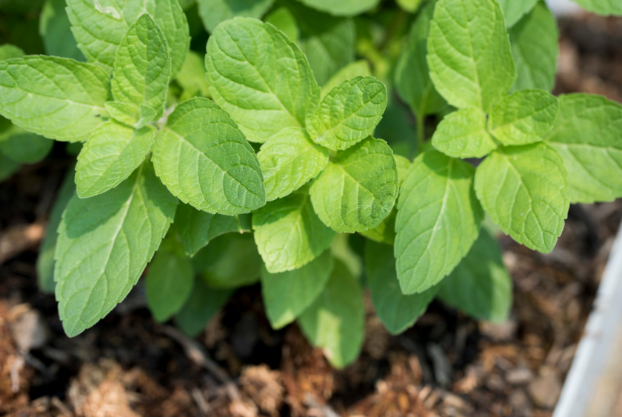
According to Vastu Shastra, Tulsi is considered a very auspicious and sacred plant. It is believed to have many medicinal properties and is also known for its ability to purify the air. Here are some reasons why Tulsi is an ideal houseplant in keeping with Vastu principles:
1. Auspiciousness: Tulsi is considered a sacred plant in Hinduism and is believed to bring good luck, positivity, and happiness into a home. It is also believed to have a purifying effect on the environment.
2. Medicinal properties: Tulsi is known for its many medicinal properties, including its ability to boost immunity, reduce stress, and improve respiratory health. By keeping Tulsi as a houseplant, you can benefit from its health-giving properties.
3. Positive energy: According to Vastu, Tulsi is believed to attract positive energy and ward off negative energies. It is said to promote harmony, peace, and tranquility in the home.
4. Easy to grow: Tulsi is a hardy and low-maintenance plant that is easy to grow indoors. It requires minimal care and can thrive in a variety of conditions, making it an ideal houseplant for beginners.
Overall, keeping Tulsi as a houseplant is considered very auspicious in Vastu Shastra. It is believed to bring many benefits to the home, including positivity, good luck, and improved health.
For Optimal Indoor Vastu, Lucky Bamboo
Lucky Bamboo is another popular houseplant that is considered auspicious in Vastu Shastra. Here are some reasons why Lucky Bamboo is an ideal indoor plant to follow Vastu principles:
1. Positive energy: Lucky Bamboo is believed to attract positive energy and good luck. It is said to promote harmony, peace, and prosperity in the home.
2. Easy to care for: Lucky Bamboo is a low-maintenance plant that requires minimal care. It can be grown in soil or in water and can thrive in a variety of indoor conditions, making it an ideal houseplant for beginners.
3. Symbolism: In Vastu Shastra, the number of stalks of Lucky Bamboo has significance. Two stalks represent love and marriage, three stalks represent happiness, five stalks represent wealth, and eight stalks represent growth and abundance.
4. Air-purifying: Lucky Bamboo is known for its ability to purify the air and remove toxins, making it a healthy and beneficial addition to any indoor environment.
When it comes to indoor Vastu, Lucky Bamboo is a popular and beneficial houseplant. It can bring positivity, good luck, and improved air quality into a home or workspace.
Money Plants are Recommended as Indoor Plants for those who Practice Vastu
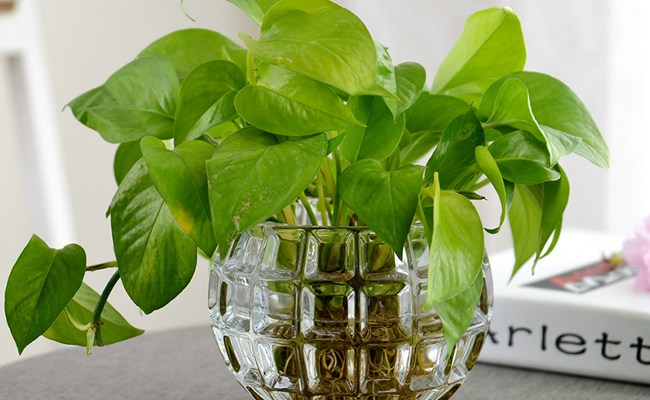
Money plant, also known as Devil's ivy, is a popular houseplant that is often recommended in Vastu Shastra for its many benefits. Here are some reasons why Money Plants are considered ideal indoor plants for those who practice Vastu:
1. Wealth and prosperity: Money Plants are believed to attract wealth and prosperity into the home. They are said to promote financial growth and success in business.
2. Air-purifying: Money Plants are known for their ability to purify the air and remove toxins, making them a healthy and beneficial addition to any indoor environment.
3. Easy to care for: Money Plants are low-maintenance plants that require minimal care. They can thrive in a variety of indoor conditions and are easy to propagate, making them an ideal houseplant for beginners.
4. Positive energy: According to Vastu Shastra, Money Plants are believed to attract positive energy and good luck. They are said to promote harmony, peace, and tranquility in the home.
5. Direction of placement: Vastu Shastra recommends placing Money Plants in the North or East direction of the house or office. This is said to enhance their positive energy and bring greater benefits.
Overall, Money Plants are a popular and beneficial houseplant in Vastu Shastra. They can bring wealth, prosperity, and improved air quality into a home or workspace, while also promoting positive energy and harmony.
When it comes to Vastu, Jade is a no-go
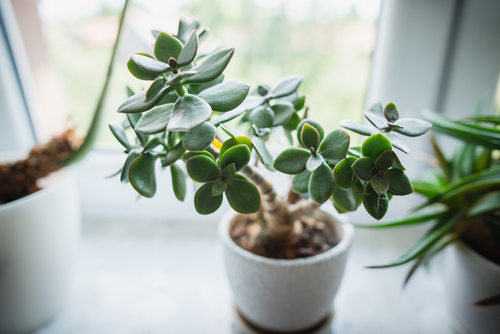
In Vastu Shastra, Jade plant is considered a plant with negative energy and is generally not recommended to be kept indoors. Here are some reasons why Jade is considered a no-go in Vastu:
1. Negative energy: Jade plant is believed to have negative energy that can affect the environment around it. It is said to bring bad luck, financial losses, and overall negative energy into the home.
2. Placement: According to Vastu Shastra, Jade plant should not be placed in the North or East direction of the house or office as it is believed to have a negative impact on financial growth and prosperity.
3. Shape: The shape of the Jade plant is also considered unfavorable in Vastu Shastra. Its round leaves are said to resemble coins, which can lead to financial losses and instability.
Overall, Jade plant is not recommended as an indoor plant in Vastu Shastra due to its negative energy and potential impact on financial prosperity. It is best to avoid keeping Jade plant indoors if you practice Vastu Shastra.
Consider Adding a Snake Plant to your Bedroom as part of the Vastu Design
Snake plant, also known as Mother-in-Law's Tongue, is a popular houseplant that is often recommended in Vastu Shastra for its many benefits, especially when placed in the bedroom. Here are some reasons why Snake Plants are considered ideal indoor plants for those who practice Vastu:
1. Air-purifying: Snake Plants are known for their ability to purify the air and remove toxins, making them a healthy and beneficial addition to any indoor environment. This can be especially helpful in the bedroom where clean air is important for quality sleep.
2. Positive energy: According to Vastu Shastra, Snake Plants are believed to attract positive energy and good luck. They are said to promote harmony, peace, and tranquility in the home, which can help create a calm and relaxing bedroom environment.
3. Easy to care for: Snake Plants are low-maintenance plants that require minimal care. They can thrive in a variety of indoor conditions and are easy to propagate, making them an ideal houseplant for beginners.
4. Direction of placement: Vastu Shastra recommends placing Snake Plants in the North or East direction of the bedroom. This is said to enhance their positive energy and bring greater benefits.
Overall, Snake Plants are a popular and beneficial houseplant in Vastu Shastra, especially when placed in the bedroom. They can help purify the air, promote positive energy, and create a calming and relaxing environment that is conducive to quality sleep.
The Lily Plant in the Bedroom Vaastu
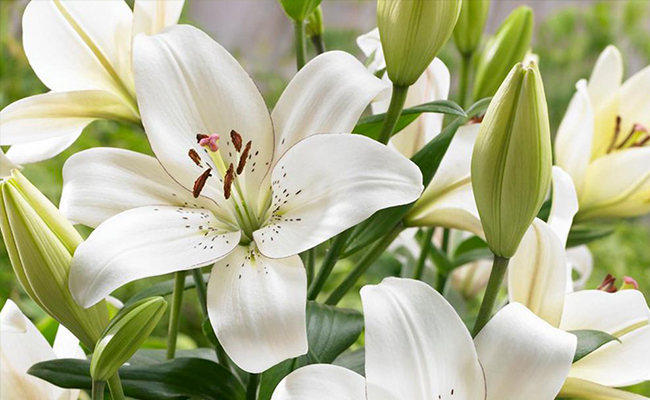
In Vastu Shastra, Lily plant is generally not recommended for the bedroom as it is believed to have a negative impact on the energy and atmosphere of the room. Here are some reasons why Lily plant is not ideal for the bedroom Vastu:
1. Negative energy: Lily plant is believed to have negative energy that can affect the environment around it. It is said to create an atmosphere of negativity, tension, and conflict in the bedroom.
2. Allergies: Lily plant can also trigger allergies in some people, which can lead to breathing difficulties and disturb the quality of sleep.
3. Inappropriate placement: According to Vastu Shastra, Lily plant should not be placed in the bedroom, especially in the South-West direction, as it is considered the direction of the Earth element and associated with stability and harmony. Placing a plant that is believed to have negative energy in this direction can have an adverse effect on the energy of the room.
Overall, it is not recommended to keep Lily plant in the bedroom as per Vastu Shastra. Instead, it is advisable to choose plants such as Snake Plant, Peace Lily, or Money Plant, which are believed to have positive energy and are suitable for the bedroom Vastu.
As a Vastu Remedy, a Rubber Plant can be Grown Indoors
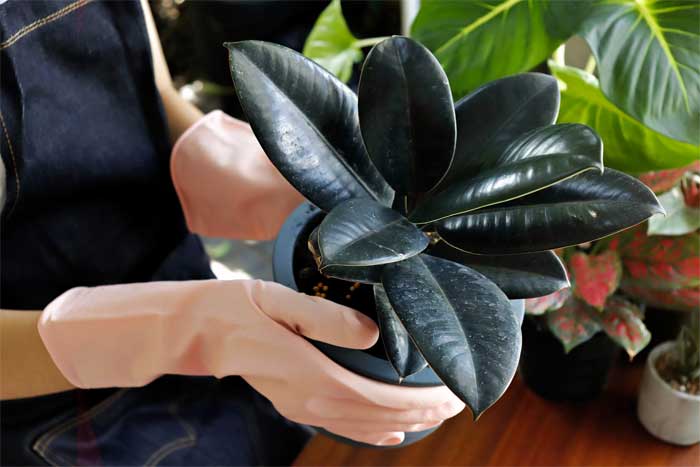
In Vastu Shastra, Rubber plant is considered to be a favorable indoor plant for home and office spaces. Here are some reasons why Rubber plant is recommended as a Vastu remedy:
1. Positive energy: Rubber plant is believed to bring positive energy and good luck to the environment. It is said to promote growth, prosperity, and abundance in the space where it is kept.
2. Air-purifying: Rubber plant is known for its air-purifying properties and is effective in removing harmful toxins from the air. This can help create a healthy and positive environment in the home or office.
3. Direction of placement: According to Vastu Shastra, Rubber plant should be placed in the East, North, or North-East direction of the home or office. This is believed to enhance the positive energy of the plant and bring greater benefits.
4. Easy to care for: Rubber plant is a low-maintenance plant that is easy to care for and can thrive in a variety of indoor conditions. This makes it an ideal choice for those who are new to indoor gardening.
Vastu Suggests Placing an Aloe Vera Plant
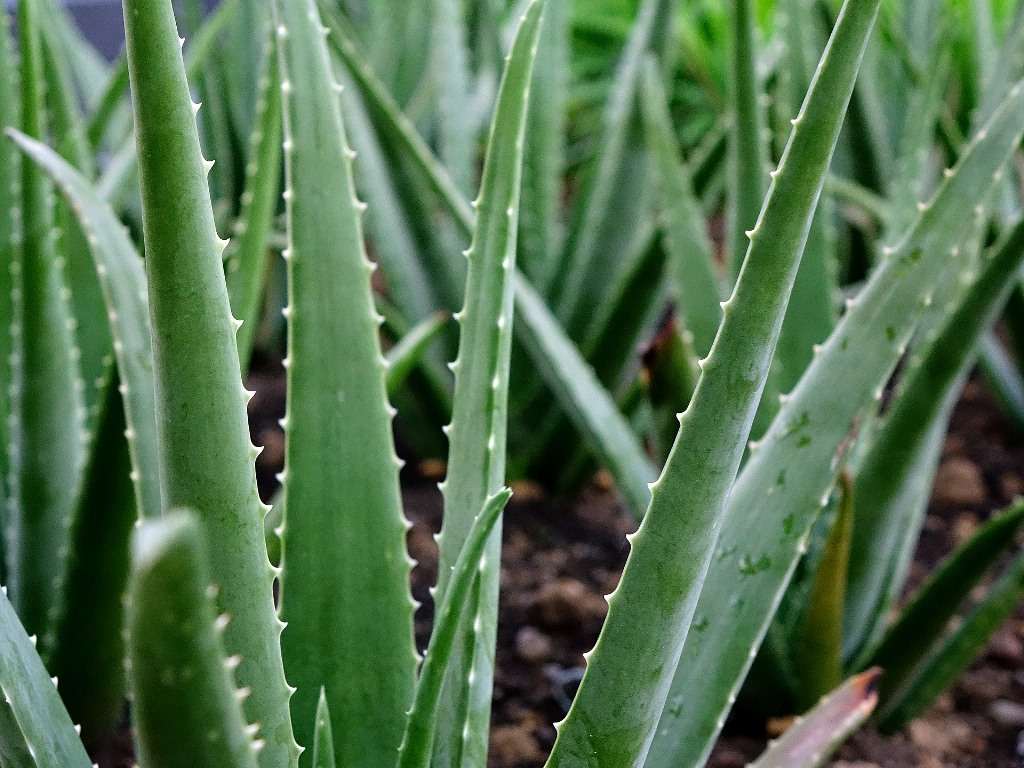
According to Vastu Shastra, placing an Aloe Vera plant in your home or office is believed to bring positive energy and good luck. Aloe Vera is considered to have several medicinal properties and is also known for its air-purifying qualities.
Here are some tips on where to place an Aloe Vera plant according to Vastu:
1. North or East direction: Placing the Aloe Vera plant in the north or east direction of your home or office is considered auspicious. These directions are believed to have positive energy and placing the plant here can attract positive vibes.
2. Avoid the South direction: It is generally recommended to avoid placing the Aloe Vera plant in the south direction as it is considered to have negative energy.
3. In a pot made of earthen material: Vastu Shastra suggests placing the Aloe Vera plant in a pot made of earthen material, such as clay. This is believed to enhance the plant's natural properties and also bring good luck.
4. On a wooden table: Placing the Aloe Vera plant on a wooden table is considered auspicious according to Vastu Shastra. Wood is believed to be a natural element that can balance the energies in the environment.
Overall, placing an Aloe Vera plant in your home or office can have several benefits, including air purification and bringing positive energy. However, it is essential to take proper care of the plant, such as providing it with adequate sunlight and water, to ensure its healthy growth.
For Optimal Harmony, Consider Adopting a Vastu-friendly Areca Palm
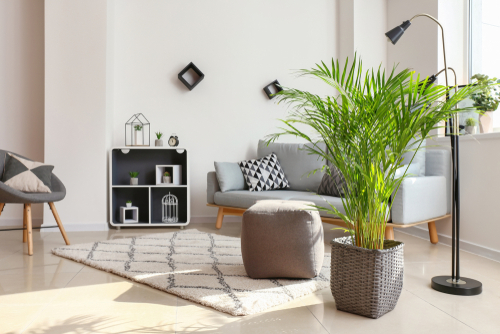
According to Vastu Shastra, adopting a Areca Palm in your home or office can bring optimal harmony and positive energy. Areca Palm is considered to have several benefits, including air purification and is also believed to bring good luck.
Here are some tips on where to place an Areca Palm according to Vastu:
1. East or North direction: Placing the Areca Palm in the east or north direction of your home or office is considered auspicious. These directions are believed to have positive energy and placing the plant here can attract positive vibes.
2. Avoid the South direction: It is generally recommended to avoid placing the Areca Palm in the south direction as it is considered to have negative energy.
3. In a pot made of earthen material: Vastu Shastra suggests placing the Areca Palm in a pot made of earthen material, such as clay. This is believed to enhance the plant's natural properties and also bring good luck.
4. On a wooden table: Placing the Areca Palm on a wooden table is considered auspicious according to Vastu Shastra. Wood is believed to be a natural element that can balance the energies in the environment.
Overall, adopting an Areca Palm in your home or office can have several benefits, including air purification and bringing positive energy. However, it is essential to take proper care of the plant, such as providing it with adequate sunlight and water, to ensure its healthy growth.
The Rose is a Vastu-Friendly Houseplant
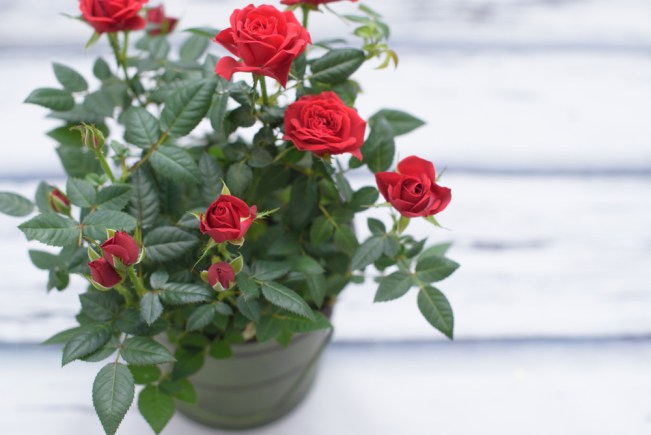
According to Vastu Shastra, the rose plant is considered to be a Vastu-friendly houseplant that can bring positive energy and good luck to your home or office. Roses are not only beautiful and fragrant, but they also have several health benefits.
Here are some tips on where to place a rose plant according to Vastu:
1. North or East direction: Placing the rose plant in the north or east direction of your home or office is considered auspicious. These directions are believed to have positive energy and placing the plant here can attract positive vibes.
2. Avoid the South direction: It is generally recommended to avoid placing the rose plant in the south direction as it is considered to have negative energy.
3. In a pot made of earthen material: Vastu Shastra suggests placing the rose plant in a pot made of earthen material, such as clay. This is believed to enhance the plant's natural properties and also bring good luck.
4. In the living room: Placing the rose plant in the living room is considered to be beneficial as it can improve the flow of positive energy in the environment.
Overall, incorporating a rose plant into your home or office can have several benefits, including adding beauty and fragrance to the space, as well as bringing positive energy and good luck. However, it is essential to take proper care of the plant, such as providing it with adequate sunlight, water, and fertilization, to ensure its healthy growth.
One of the Recommended Vastu Houseplants is the Jasmine
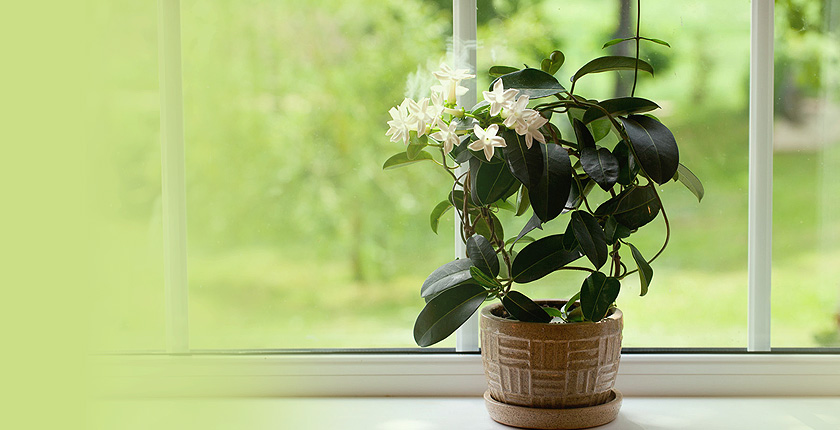
According to Vastu Shastra, the jasmine plant is considered to be a Vastu-friendly houseplant that can bring positive energy and good luck to your home or office. Jasmine is not only a beautiful and fragrant plant, but it is also believed to have several health benefits.
Here are some tips on where to place a jasmine plant according to Vastu:
1. North or East direction: Placing the jasmine plant in the north or east direction of your home or office is considered auspicious. These directions are believed to have positive energy and placing the plant here can attract positive vibes.
2. Avoid the South direction: It is generally recommended to avoid placing the jasmine plant in the south direction as it is considered to have negative energy.
3. In a pot made of earthen material: Vastu Shastra suggests placing the jasmine plant in a pot made of earthen material, such as clay. This is believed to enhance the plant's natural properties and also bring good luck.
4. In the bedroom: Placing the jasmine plant in the bedroom is considered to be beneficial as it can promote better sleep and reduce stress levels.
Overall, incorporating a jasmine plant into your home or office can have several benefits, including adding beauty and fragrance to the space, as well as bringing positive energy and good luck. However, it is essential to take proper care of the plant, such as providing it with adequate sunlight, water, and fertilization, to ensure its healthy growth.
Lavender and Chrysanthemums are Great choices for a Vastu-friendly Houseplant
Yes, lavender and chrysanthemums are also great choices for a Vastu-friendly houseplant.
According to Vastu Shastra, lavender is believed to have several benefits, including calming the mind, reducing stress, and promoting better sleep. Here are some tips on where to place a lavender plant according to Vastu:
1. North or East direction: Placing the lavender plant in the north or east direction of your home or office is considered auspicious. These directions are believed to have positive energy and placing the plant here can attract positive vibes.
2. In a pot made of earthen material: Vastu Shastra suggests placing the lavender plant in a pot made of earthen material, such as clay. This is believed to enhance the plant's natural properties and also bring good luck.
3. In the bedroom: Placing the lavender plant in the bedroom is considered to be beneficial as it can promote better sleep and reduce stress levels.
Similarly, chrysanthemums are also believed to have several benefits, including purifying the air and promoting longevity. Here are some tips on where to place a chrysanthemum plant according to Vastu:
1. North, East or West direction: Placing the chrysanthemum plant in the north, east or west direction of your home or office is considered auspicious. These directions are believed to have positive energy and placing the plant here can attract positive vibes.
2. In a pot made of earthen material: Vastu Shastra suggests placing the chrysanthemum plant in a pot made of earthen material, such as clay. This is believed to enhance the plant's natural properties and also bring good luck.
3. In the living room: Placing the chrysanthemum plant in the living room is considered to be beneficial as it can improve the flow of positive energy in the environment.
Overall, incorporating lavender or chrysanthemum plants into your home or office can have several benefits, including adding beauty and fragrance to the space, as well as bringing positive energy and good luck. However, it is essential to take proper care of the plants, such as providing them with adequate sunlight, water, and fertilization, to ensure their healthy growth.
Related posts:
Dianthus flowers, commonly known as carnations or pinks, are popular garden flowers appreciated for their colorful blooms and pleasant fragrance. Here are some guidelines on how to grow and care for Dianthus flowers:
New Year's Decorations, Ideas, and Recipes. Make your New Year's Eve party the talk of the town with cool recipes, trendy decorations, and some fun ideas. Decorate your home beautifully with Balloon decorations this New Year 2024. Make your room,...
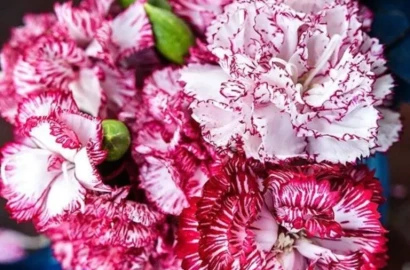

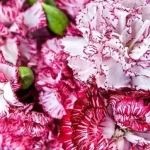 How to grow and care for Dianthus flowers?
How to grow and care for Dianthus flowers?
 New Year Party Decoration Ideas For Home
New Year Party Decoration Ideas For Home
 Best Eco-Friendly Home Designs In India
Best Eco-Friendly Home Designs In India
 Real Estate Investing
Real Estate Investing
 7 Open House Food Ideas
7 Open House Food Ideas